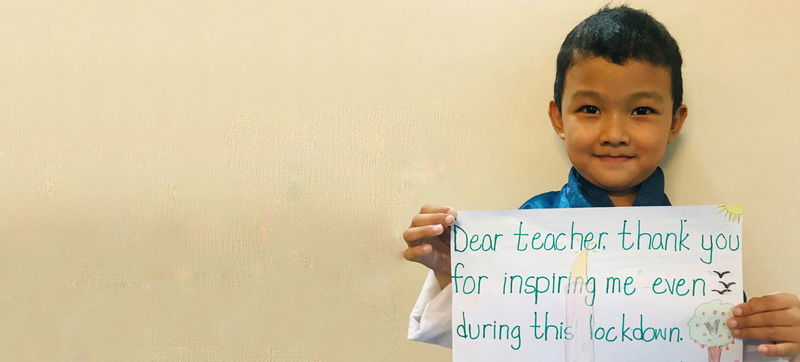 School System
School System
Shutting school systems, wrong response to COVID-19, UNICEF says
New York: Countries fighting the coronavirus should not impose nationwide or large-scale school closures, which is the wrong response and compounds the societal cost of the disease, with 320 million children locked out of school at the start of December, the UN children’s agency UNICEF said on Tuesday.
“What we have learned about schooling during the time of COVID is clear: the benefits of keeping schools open, far outweigh the costs of closing them, and nationwide closures of schools should be avoided at all costs”, Robert Jenkins, UNICEF Global Chief of Education, said in a statement.
Closing schools did not help in the fight against COVID-19, but simply removed a system that provides children with support, food and safety as well as learning, UNICEF said. Instead of shutting them, governments should prioritize school reopening and make classrooms as safe as possible.
Don't scapegoat schools
“Evidence shows that schools are not the main drivers of this pandemic. Yet, we are seeing an alarming trend whereby governments are once again closing down schools as a first recourse rather than a last resort. In some cases, this is being done nationwide, rather than community by community, and children are continuing to suffer the devastating impacts on their learning, mental and physical well-being and safety”, Mr. Jenkins said.
November saw a 38 per cent jump in the number of children affected by school closures, UNICEF said, after a big wave of reopenings the previous month.
“In spite of everything we have learned about COVID-19, the role of schools in community transmission, and the steps we can take to keep children safe at school, we are moving in the wrong direction - and doing so very quickly”, the top education official added.
Expanding access
Reopening plans must include expanded access to education, including remote learning, and rebuilding education systems to withstand future crises, UNICEF said.
The agency cited a recent study using data from 191 countries, published by the independent non-profit foundation, Insights for Education, which showed no association between school status and COVID-19 infection rates in the community.
The UN agency, together with the UN educational agency UNESCO, the refugee agency UNHCR, the UN World Food Programme and the World Bank, has published a Framework for Reopening Schools, with practical advice covering areas such as policy reform, financing requirements, safe operations and reaching the most marginalized children, who are the most likely to drop out of school altogether.
Support Our Journalism
We cannot do without you.. your contribution supports unbiased journalism
IBNS is not driven by any ism- not wokeism, not racism, not skewed secularism, not hyper right-wing or left liberal ideals, nor by any hardline religious beliefs or hyper nationalism. We want to serve you good old objective news, as they are. We do not judge or preach. We let people decide for themselves. We only try to present factual and well-sourced news.







